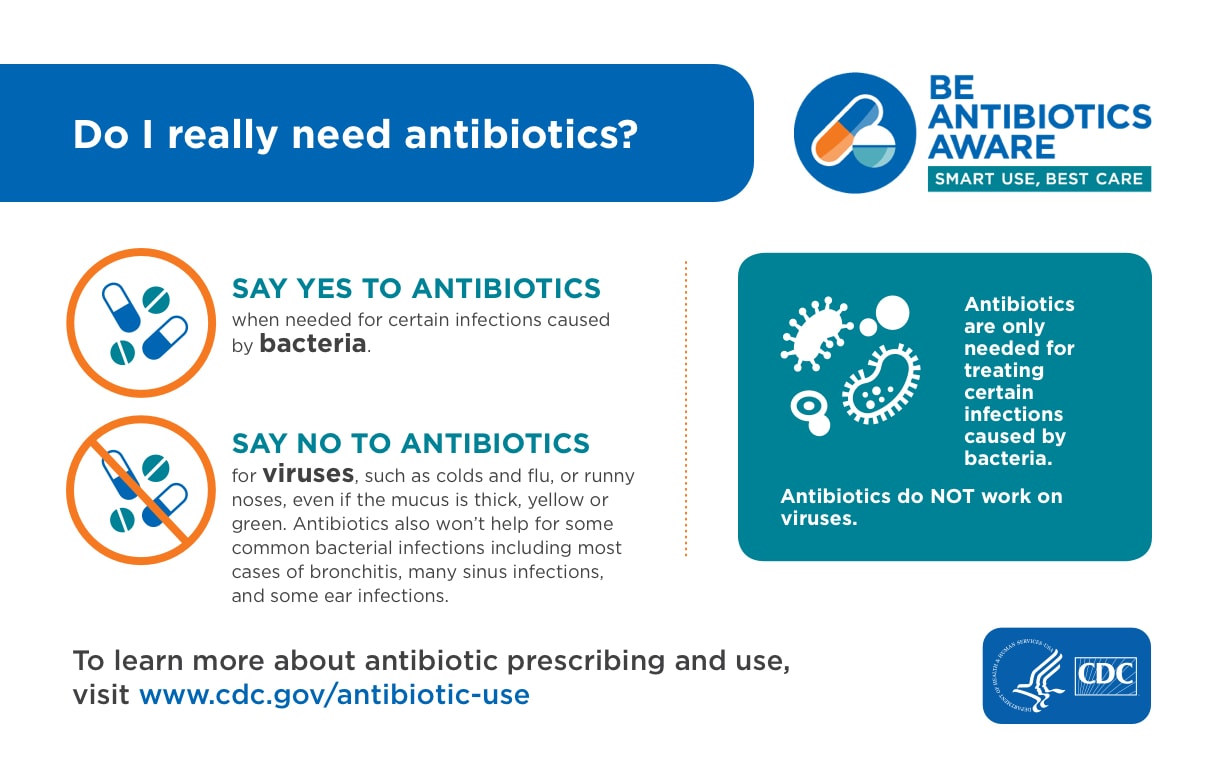What is antibiotic resistance?
Antibiotics treat infections that are caused by bacteria, such as strep throat. When symptoms are caused by a virus—like a sore throat, flu or the common cold—antibiotics won't provide any relief.
Using antibiotics when they aren’t necessary contributes to widespread antibiotic resistance—where bacteria adapt and change, making the medicines designed to kill them less effective. The more prescriptions are written for antibiotics around the world, the more chance there is that some bacteria will develop antibiotic resistance.
Simply put, that means the bacteria can no longer be killed by an antibiotic and the condition becomes much more dangerous. According to the U.S. Centers for Disease Control, more than 2.8 million infections and 35,000 deaths occur each year in the U.S. from antibiotic-resistant bacteria.
Symptoms can be confusing
The tricky thing is that symptoms of infections caused by bacteria can be very similar to those caused by a virus. “It’s important to understand that not every case of throat or ear pain is due to a bacterial infection,” says Ryan Fulton, DO, section chief at Carilion Children’s Outpatient Pediatric Medicine. “A thorough examination is essential, as it allows us to differentiate between viral and bacterial infections and determine the most effective treatment.”
Time is the best medicine
In some cases, even when bacteria are involved, antibiotics may not be necessary. “The body has a remarkable ability to heal itself, and sometimes a conservative approach is best,” says Dr. Fulton.
For example, many childhood ear infections will improve on their own without antibiotics. While your body works to clear the infection, managing symptoms with acetaminophen or ibuprofen can provide relief. He emphasizes, “If symptoms linger or worsen after about a week, it’s important to follow up with your doctor to reevaluate the situation and consider appropriate treatments.”
Antibiotic alternatives
So, what can you do when you’re feeling unwell but antibiotics aren’t appropriate? For viral infections, supportive care is key. This often includes rest and staying hydrated.
“While many adults can safely use over-the-counter medications to relieve symptoms like cough and congestion, it’s important to be cautious with children,” explains Dr. Fulton. “Not all OTC medications are suitable for young ones, and dosages must be carefully considered.” He advises consulting with a healthcare professional before giving any OTC medications to children, as they may require different approaches or specific treatments based on their age and condition.
Tips for Taking Antibiotics Safely
Both doctors and patients can help to prevent antibiotic resistance. If you’re given a prescription for an antibiotic, be sure to take every prescribed dose—even if you start to feel better. If you stop taking the antibiotic before the course is complete, you will only have cleared the "weaker" bacteria, leaving the "stronger" bacteria a chance to adapt and become resistant.
Reach out to your doctor or pharmacist for more information about how to safely take your prescribed antibiotic.


